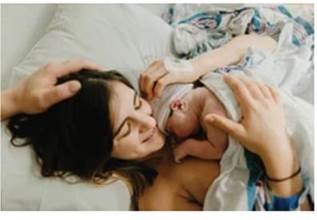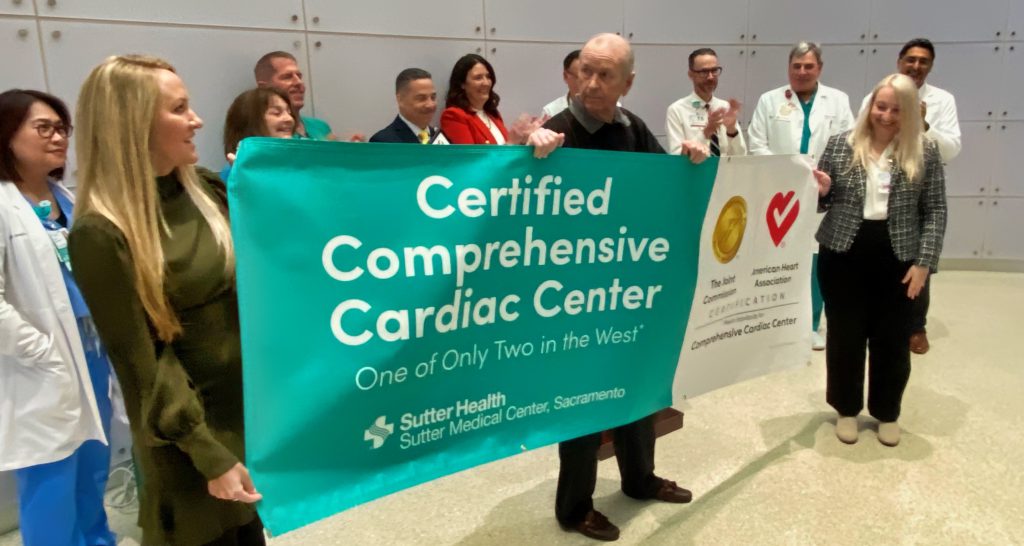This article was written by Anita Mantha, M.D., pediatrician with the Palo Alto Medical Foundation for the August 2020 issue of Bay Area Parent magazine.
Raising a newborn has never been easy. Nighttime feedings, coping with your own body’s recovery and the constant worry that comes with keeping your little bundle of joy safe are all part of being a new parent. In the midst of a pandemic, that job may be even more challenging. In the era of COVID-19, how do we keep our newborn baby safe, while enjoying the beautiful journey ahead?
If a mother is suspected or known to have COVID-19, how do doctors care for the newborn?
This is an evolving topic, as we learn more about this virus. Many hospitals are currently testing pregnant women around the time of their delivery for COVID-19. You can check with your obstetrician and the hospital team to find out if and when this test is being done if you have questions.
If you do test positive, do not panic. Hospitals have policies and procedures in place to help keep you and medical staff protected. While your care team may look a bit different than you imagined – gowns, face shields, masks and gloves – they will still work hard to support you during your delivery.
Once your baby is born, your care team will likely recommend that you wear a mask and practice good hand hygiene. Your baby may also be tested. Your care team will likely discuss additional precautions around topics such as physical distancing and feeding. Please remember not to put face coverings on children less than 2 years of age.
Can I still breastfeed my baby if I have COVID-19?
The benefits of breast-feeding have been long documented. One of the benefits is that breastmilk has antibodies that help protect the body against bacteria and viruses, potentially making it all the more important to breast feed your newborn now. In limited studies, COVID-19 has not been detected in breast milk. However, we do not know for sure whether mothers with COVID-19 can spread the virus via breast milk.
What we do know is that it’s important to practice good hand and breast hygiene while pumping. Also, consider having a caregiver in good health offer bottles of your milk. If you have tested positive for COVID-19, you and your care team can discuss when and how to nurse your baby directly.
What are the symptoms of COVID-19 in a newborn?
Newborns can have a wide range of symptoms including fever (defined as a temperature greater than 100.4F), poor feeding, being very tired, coughing, congestion, runny nose and/or breathing difficulties. The tricky part about newborns is that these symptoms can be caused by a variety of things, so it is important to discuss any concerns with your care team. The good news is that most children (including newborns born on time) with COVID-19 are asymptomatic or have mild symptoms. Prior to going home with your newborn, consider having a thermometer at home and being comfortable taking a rectal temperature, which is the most accurate temperature reading in newborns. Having your physician’s advice line number on hand is also important in case questions arise.
Can I let family members visit the baby? How do I keep my newborn safe from COVID-19?
Aside from COVID-19, we recommend caution, especially in the first month of life, to prevent your baby from catching an infection. Your newborn has an immature immune system and is at risk for serious bacterial infections. For these reasons, a fever is considered an emergency, and you should seek care for your child right away if it happens.
Now, more than ever, try to limit visitors in the first month of life. Anyone who visits should practice careful hand hygiene, practice physical distancing and wear a mask as much as possible. Please remember, even in the midst of a pandemic, normal newborn concerns still exist: jaundice, weight checks, etc. Please keep all regularly scheduled newborn care appointments and inform your care team if you or your baby are symptomatic prior to these visits so they can determine next steps.
I know moms can go through “baby blues.” Won’t physical distancing only make this feeling of isolation worse?
With all that is going on, it is natural for new mothers to feel as if they are on an emotional roller coaster. The important thing is, even though you may need to physically distance yourself to keep your newborn safe, you do not need to emotionally distance. Make sure to connect virtually with friends and family as much as possible. Connecting with other parent friends via video or phone calls can be helpful as well. La Leche League (llli.org) also provides great support to new parents.
What can I do to help my postpartum worries?
Make sure to take time for yourself and try to maintain a bit of a routine to help feel more balanced. Try to avoid frequently checking the news or social media, as this can lead to more stress. Consider some time for meditation, spending time outdoors or anything else you find enjoyable. Postpartum blues can turn into something more serious such as postpartum depression or anxiety, so please seek help if you are feeling that your mood is making it difficult to function. There are many resources to help, so do not wait to reach out. As things are constantly changing, please check with your healthcare team for updates on the care of newborns in this challenging time. The CDC also offers helpful information here.





